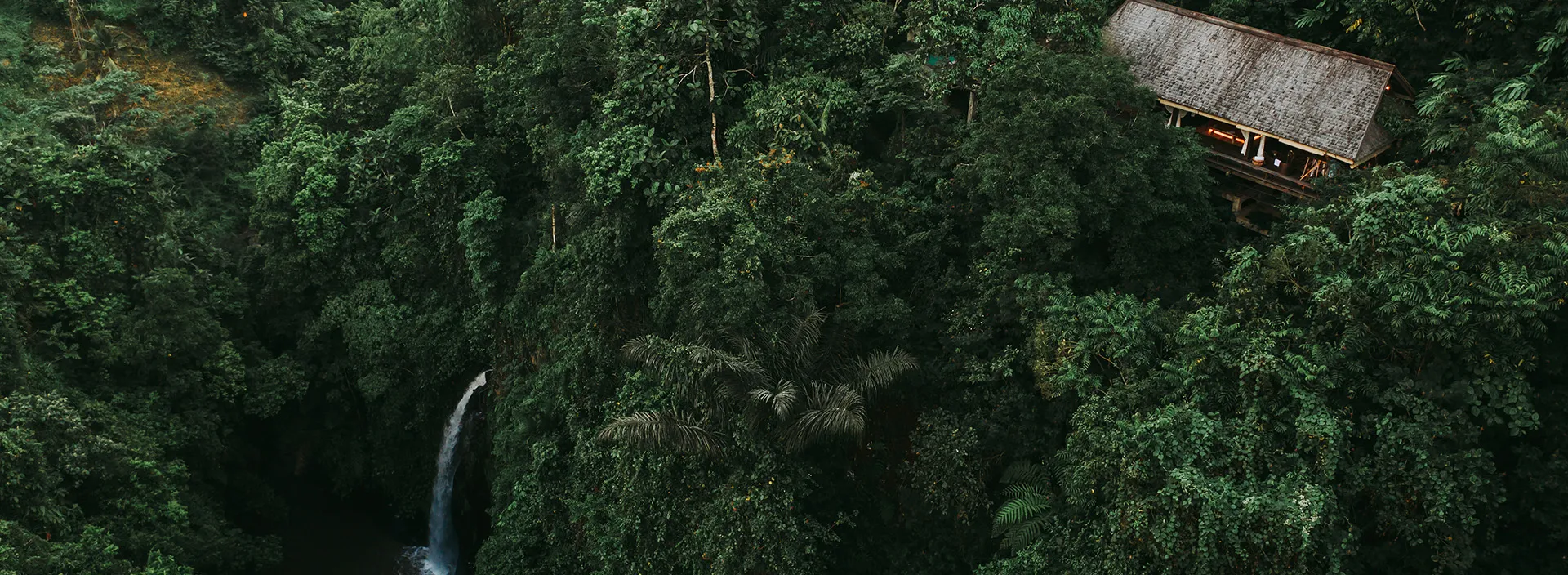OVERVIEW
As urbanisation rises, Banyan Group focuses on enhancing biodiversity and restoring habitats. The new Rewilding Banyan Fund supports ongoing efforts to promote environmental sustainability across all its properties.
- 17/10/2024
- 6 minutes
In today’s rapidly urbanising world, green spaces are vanishing as quickly as they are created. In cities, where trees are often removed to make way for development, every bit of greenery becomes a precious asset. Trees not only soothe the soul but also play a crucial role in combating pollution, providing respite from the heat, and fostering biodiversity. But for urban areas with limited parks and gardens, pocket forests offer a solution.
A green revival: Rewilding and pocket forests
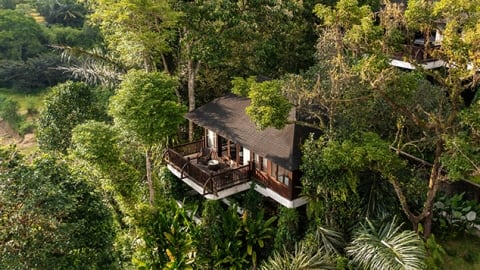
Rewilding is a progressive approach to conservation that allows nature to reclaim spaces on its own terms. By letting natural processes take over, ecosystems are restored, enabling biodiversity to flourish with minimal human intervention.
A pocket forest is a small, high-density area of trees and shrubs, planted closely together to mimic natural regeneration. These mini-forests accumulate carbon, reduce water runoff, enrich the soil, and provide habitats for wildlife. They are an effective solution for reforesting urban spaces, turning even the smallest plots of land into robust ecosystems.
A proven method for creating these miniature forests is the Miyawaki Method, pioneered by Japanese plant ecologist Professor Akira Miyawaki. He drew inspiration from nature’s ecosystems to devise a method for creating 100% organic, dense and diverse forests in as little as 20-30 years.
Dr Miyawaki supervised the planting of more than 1,500 of these miniature forests, first in Japan, then in other parts of the world. Today, rewilding specialists use his method to help communities around the world reintroduce wild species back into natural landscapes.
Reforesting Bang Tao Bay using the Miyawaki Method
In 2023, three pocket forests were established at Laguna Phuket using 84 native species from the island’s last virgin rainforest, Khao Phra Thaew. This pilot, in collaboration with rewilding specialists SUGi, aimed to create a climate-resilient ecosystem by selecting species that grow naturally without human intervention.
Here is how one of the pocket forests look like after a brief period of six months:
Using the Miyawaki Method, 7,500 saplings were planted across the Open Kitchen and Veya Grove, with the involvement of local children, including Laguna Phuket Kindergarten students. These areas will gradually become flourishing biodiversity hotspots, fostering environmental stewardship in the younger generation and showcasing the power of rewilding in urban spaces.
Take a look at the video featuring the rewilding project in Laguna Phuket:
From tin mine to thriving sanctuary
Banyan Group’s commitment to rewilding is deeply rooted in its history. The site of Banyan Tree’s flagship resort in Phuket, once a barren tin mine, was rehabilitated into a lush sanctuary through the planting of over 7,000 trees. This project laid the foundation for the Group’s ethos of environmental stewardship, demonstrating how rewilding can not only restore landscapes but also can foster meaningful connections between people and nature.
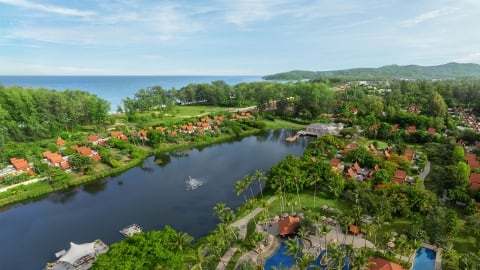
From this humble start, the Group’s sustainability efforts grew. In 2001, Banyan Group launched the Green Imperative Fund, supporting community-based environmental projects globally. By 2004, the first resort-based Marine Lab in the Maldives was established, a hub for marine conservation and education. As these efforts expanded, the Banyan Global Foundation was founded in 2009 to formalise the Group’s commitment to sustainable development.
By 2014, the ‘for Good’ initiatives were launched across the Group, inviting guests and associates to actively engage in sustainability through the Stay for Good programme. Whether cleaning coral reefs in the Maldives, releasing sea turtles in Thailand, or planting mangroves in Indonesia, participants take part in hands-on activities that foster care for the environment and respect for local cultures.
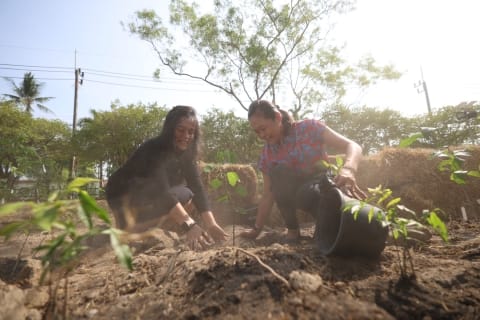
More recently, the Greater Good Grants, introduced in 2020, provide crucial support to communities and environments in need. Through these initiatives, Banyan Group continues to cultivate sanctuaries where nature and people thrive in harmony.
With 12,963 trees planted in 2023 alone, Banyan Group is just getting started. The rewilding project at Laguna Phuket serves as a blueprint for future efforts, with additional properties in the pipeline, continuing the Group’s mission of restoring nature, one pocket forest at a time.
Rewilding Banyan Fund: Celebrating 30 years of environmental stewardship
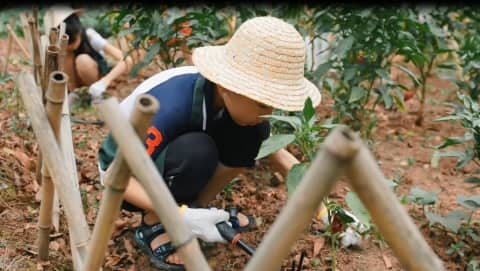
To mark its 30th anniversary, Banyan Group is launching the Rewilding Banyan Fund. Starting in November, the Group is pledging USD$1 for every direct booking to the initiative, which aims to support rewilding initiatives.
The fund aims to enhance biodiversity and restore ecosystems, with 10 more rewilding projects already planned.
Now, the newly introduced Rewilding Banyan Fund will join the array of sustainability initiatives, reinforcing the Group’s commitment of ‘Embracing the Environment, Empowering People’.
